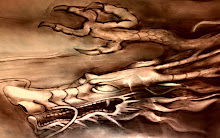After ten raging years of hostel-hopping and share-housing, the idea of “home” has become no more than the few familiar trinkets I drag around with me, and the déjà vu of nine repeated stays in buildings like Hong Kong’s Chungking Mansions. My post-modern nomadic lifestyle has found me renting in excess of fifteen different share-houses across six countries, traversing the hostels of another twenty, and spending long extended months on grimy couches.
In fact, it had been so long without central air-conditioning, functional household appliances, five cars for a family of five, a private patch of grass, and an unobtrusive place to hang my washing, even the idea of a month with my parents, in a remote corner of Australian suburbia had me on edge. Of course my edginess could always be offset by moments of rosy nostalgia for the obvious benefits – no roaches, no voyeuristic landlords, no construction sites, and no acid rain … just sunny arvos filled with warbling magpies and puffy clouds.
The reality of these wonderful arvos though, is they give you a lot of time to obsess about things like allergies to gluten, and which sacred Indian cow gave you tapeworm. And as these worries subside the mind tends to fill with delightful childhood memories like playing lesbian Perfect Match with Barbie (because Ken was ever-absent), or writing long heart-wrenching Dear Diary entries delineating the complexities of being eleven, which would later be used as performance pieces by my brother to entertain other small, snotty children.
After a decade outside the shelter of the family, I can now affirm not having a Ken doll and being mocked by a group of eight year olds are fairly minor household challenges. Living jacked between two major inner-city freeways, with a nutcase who leaves chocolate bunny-face croissants outside your room by day, and writes disparaging classifieds in your name by night is much more testing. As is room-sharing with a girl who has a penchant for Celine Dion ballads (in Italian), and who wants you to make decisions based on her mother’s communication with a dead saint.
My return to the familial home though has been most marked by the reminder that cleaning doesn’t have to be democratic. There actually isn’t a need for individual dirty-dish stacking stations, and it is only a dull egalitarianism that gives everyone an equal right not to scrub the toilet. My parents’ extreme cleanliness has also successfully expelled all of life’s murky bits and hidden skeletons. There are no algae infested pools with feral ducks, no family heirlooms inherited from the Argentine dictator Juan Manuel de Rosas, and no horror film obsessed Alzheimer’s patients locked up in back studies.
Despite pushing on thirty and feeling the world has changed me, I’m discovering that under my parent’s roof, I inevitably suffer from a compulsive, reactionary eating disorder, which I like to blame on everyone else’s weird carb-free, lactose-free, organic diets. The eating also dampens the effects of my mother’s regret-filled diatribes about bringing up strong-willed, independent children. Because now, instead of being settled into a life in suburbia (around the corner from her), and willingly popping out her third grandchild, I only crave the return to my anonymous and clandestine existence in the heart of China.
*
















































